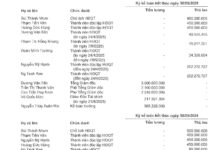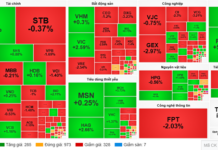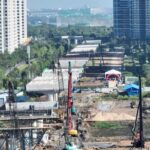
Deputy Prime Minister Ho Duc Phoc chaired a meeting with ministries, sectors, and localities regarding the Decree amending and supplementing several articles of Decree No. 85 dated April 8, 2025, issued by the Government, detailing the implementation of certain provisions of the Law on Public Investment. Photo: VGP/Tran Manh
|
Addressing Challenges to Ensure Effective and Compliant Public Investment Implementation
Speaking at the meeting, Deputy Prime Minister Ho Duc Phoc emphasized that the amendment of Decree No. 85 must align with the new administrative apparatus structure and resolve practical issues, particularly those not covered in the Law on Public Investment or inadequately delegated.
He stressed the urgency of the matter, requiring the draft and procedures to be finalized this week to establish a suitable legal framework, remove obstacles, and ensure efficient, compliant public investment.
According to the Ministry of Finance, the draft amendment includes three articles: Article 1 amends Decree No. 85, Article 2 outlines transitional provisions, and Article 3 specifies the effective date.
The Ministry of Finance highlighted key amendments, including improvements to the process for drafting and consolidating medium-term public investment plans funded by the state budget. This clarifies the role of the Ministry of Science and Technology in coordinating with agencies and localities to allocate funds for science, technology, innovation, and digital transformation. It also introduces a new method for assigning medium-term investment plans.
For annual public investment plans, the draft specifies the Ministry of Science and Technology’s role in guiding and consolidating plans from central agencies and localities for science, technology, innovation, and digital transformation, in line with the State Budget Law and the Law on Science and Technology.
Additionally, the draft amends regulations on adjusting medium and annual public investment plans and introduces procedures for approving nuclear power plant investment policies, capital appraisal limits, and balancing mechanisms.
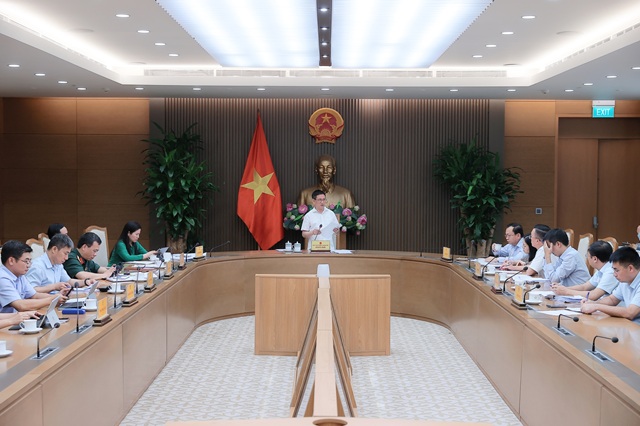 Deputy Prime Minister Ho Duc Phoc: Amending Decree No. 85 must align with the new administrative structure and address practical challenges. Photo: VGP/Tran Manh
|
The draft also proposes removing district-level regulations to align with the two-tier local government structure.
Currently, communes have the authority to develop, approve, and manage their medium and annual public investment plans, as well as approve investment policies and implement Group B and C projects (with a maximum investment of up to VND 4.6 trillion). Under Decree No. 125/2025/ND-CP, communes can also execute previously district-approved projects that remain incomplete, provided they are delegated by provincial authorities.
The draft further suggests decentralizing authority from the Prime Minister to ministries and sectors.
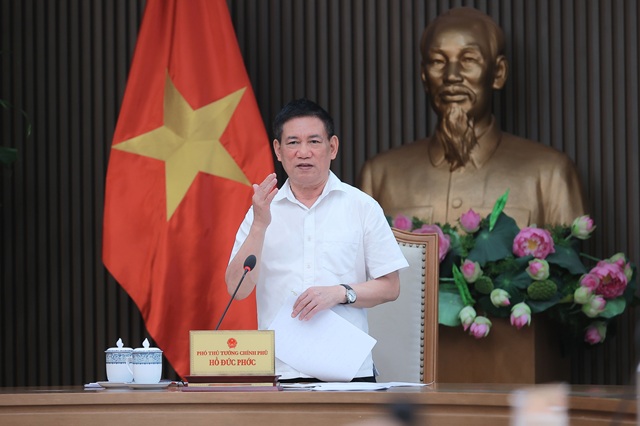
Deputy Prime Minister Ho Duc Phoc instructed the Ministry of Finance to incorporate feedback from ministries, localities, and finalize the draft for Government members’ review by September 16. Photo: VGP/Tran Manh
|
Urgent Submission for Government Members’ Review by September 16
Concluding the meeting, Deputy Prime Minister Ho Duc Phoc suggested that if commune-level People’s Committees lack capacity, they should propose specialized departments to appraise projects before making decisions.
Regarding public investment capital planning, he endorsed ministry proposals, recommending that the Prime Minister approve total capital, project lists, and allocations for ministries, localities, and central budgets. The Ministry of Finance should notify investment in the budget estimate, oversee implementation, and monitor compliance.
For investment project adjustments, ministries, localities, and investors may make changes during implementation, reporting challenges to competent authorities with clear justifications to ensure transparency and legality.
Self-generated revenue from public service units allows them to decide on capital allocation, while state budget-funded projects require state agency management.
For inter-provincial projects (e.g., bridges spanning two provinces), the involved localities must agree; if not, the Prime Minister will decide.
Investment-related recurrent expenditures follow the State Budget Law and its guiding decrees.
When projects are delegated (e.g., central projects to provinces), the receiving level acts as the investor, manages capital, and assumes full responsibility. Central agencies retain state management oversight.
Deputy Prime Minister Ho Duc Phoc also addressed regulations for nuclear power, IT projects, ODA-funded public investments, and science and technology initiatives.
He directed the Ministry of Finance to incorporate feedback, finalize the draft, and submit it for Government members’ review by September 16.
– 20:23 15/09/2025
Prime Minister Directs Policies on Gold Market and Pilot Cryptocurrency Asset Market
The Prime Minister has mandated the development of the gold market in accordance with Decree 232, issued by the Government on August 26, 2025.
Prime Minister Criticizes 29 Ministries, Agencies, and 12 Localities for Below-Average Disbursement Rates
According to reports, 18 ministries, central agencies, and 30 localities have yet to fully allocate the capital plans assigned by the Prime Minister, totaling nearly VND 38,400 billion. By the end of August 2025, 29 ministries, agencies, and 12 localities recorded disbursement rates below the national average.
Unlocking Development: Vietnam Fast-Tracks ODA Disbursement to Meet Targets
Despite raising nearly $450 million in 8 months, the disbursement rate of foreign loans remains low. The government is urging for continued partnership to expedite project procedures and progress.
“Get Ready for the Highly-Anticipated Launch of the Laos Cai – Hanoi – Haiphong Railway Project”
“The Prime Minister has instructed the Ministry of Construction to expedite the preparation of a feasibility report for the commencement of the Lao Cai – Hanoi – Hai Phong railway project by December 19th. This ambitious undertaking promises to revolutionize transportation across these key provinces, offering enhanced connectivity and unprecedented efficiency in freight and passenger travel.”













